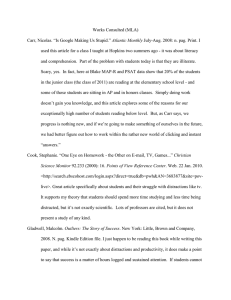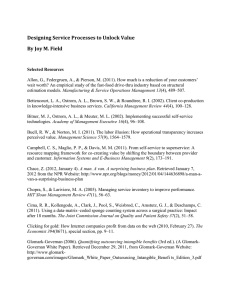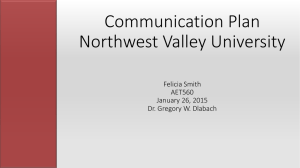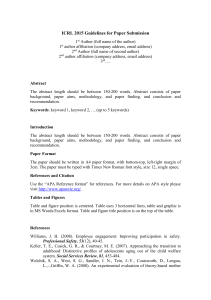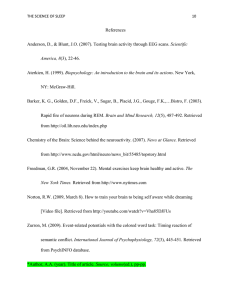Works Consulted (APA) Newsweek
advertisement
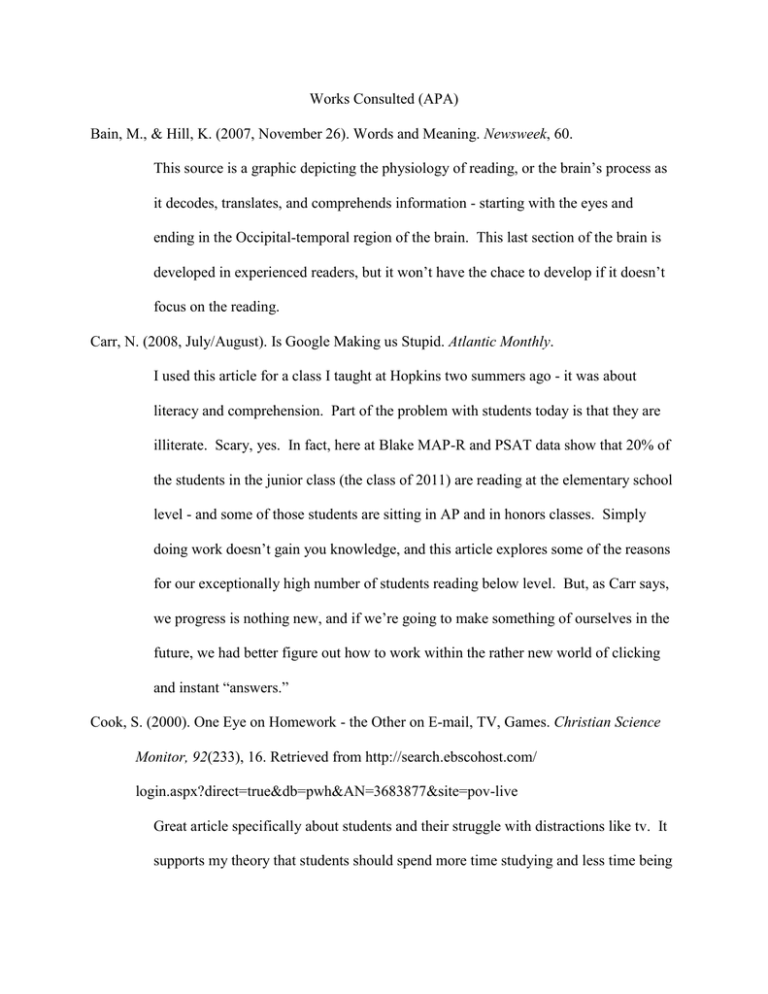
Works Consulted (APA) Bain, M., & Hill, K. (2007, November 26). Words and Meaning. Newsweek, 60. This source is a graphic depicting the physiology of reading, or the brain’s process as it decodes, translates, and comprehends information - starting with the eyes and ending in the Occipital-temporal region of the brain. This last section of the brain is developed in experienced readers, but it won’t have the chace to develop if it doesn’t focus on the reading. Carr, N. (2008, July/August). Is Google Making us Stupid. Atlantic Monthly. I used this article for a class I taught at Hopkins two summers ago - it was about literacy and comprehension. Part of the problem with students today is that they are illiterate. Scary, yes. In fact, here at Blake MAP-R and PSAT data show that 20% of the students in the junior class (the class of 2011) are reading at the elementary school level - and some of those students are sitting in AP and in honors classes. Simply doing work doesn’t gain you knowledge, and this article explores some of the reasons for our exceptionally high number of students reading below level. But, as Carr says, we progress is nothing new, and if we’re going to make something of ourselves in the future, we had better figure out how to work within the rather new world of clicking and instant “answers.” Cook, S. (2000). One Eye on Homework - the Other on E-mail, TV, Games. Christian Science Monitor, 92(233), 16. Retrieved from http://search.ebscohost.com/ login.aspx?direct=true&db=pwh&AN=3683877&site=pov-live Great article specifically about students and their struggle with distractions like tv. It supports my theory that students should spend more time studying and less time being distracted, but it’s not exactly scientific. Lots of professors are cited, but it does not present a study of any kind. Gladwell, M. (2008). Outliers: The Story of Success. Retrieved from Kindle database. I just happen to be reading this book while writing this paper, and while it’s not exactly about distractions and productivity, it does make a point to say that success is a matter of hours logged and sustained attention. If students cannot sustain attention, they are less likely to be successful in class or in life than students who can. Gladwell uses many examples to illustrate this point, from The Beatles to the top Hockey Players to wildly successful Lawyers. Patton, J. E., Stinard, T. A., & Routh, D. K. (1983, May/June). Where do Children Study? The Journal of Educational Research, 76(5), 280-286. Retrieved from http://www.jstor.org/ stable/ 27539988?&Search=yes&term=%22where+do+children+study%22&list=hide&searchUr i=%2Faction%2FdoBasicSearch%3FQuery%3D%2522where%2Bdo%2Bchildren%2Bst udy%2522%26gw%3Djtx%26prq%3Dwhere%2Bdo%2Bchildren%2Bstudy%26hp%3D2 5%26wc%3Don&item=1&ttl=8&returnArticleService=showArticle I finally found a study!! I don’t know if it’s exactly what I need, but it’s definately a start. This study looks at elementary school students through 9th grade. Since I’m writing about high school students, it might not really be taken seriously. What I know now, though, is that there are studies that exist on this very topic. It was hard to find - I had to refine every search to find what I needed. Raeburn, P. (2009, August 28). Multitasking May Not Mean Higher Productivity. In NPR [Interview]. Retrieved January 21, 2010, from PBS website: http://www.npr.org/ templates/story/story.php?storyId=112334449 I’m not sure how helpful this will be in my paper, but it definitely provides extra professorial support for the “One Eye on Homework” article. This one allows listeners to call in and the Dr. will answer questions, which is nice. Dr. Nass says that “[people will] do better because of all the studies showing that multitasking impairs performance,” but still I have found no studies. I’m still looking for these. Maybe I’ll try Lexus Nexus at the public library or at NIH. Treasure, J. (Speaker). (2009, July). The 4 Ways Sound Effects Us [Audio podcast]. Retrieved from http://www.ted.com/talks/lang/eng/ julian_treasure_the_4_ways_sound_affects_us.html This talk is the initial inspiration for my research. I never would have thought that my gut feeling actually has research to back it up. This talk discusses, among other things, the loss of productivity at work when there are sounds making work difficult. It can only be concluded that the same is true for homework. Willingham, D. T. (2009). Why Don’t Students Like School? A cognitive scientist answers questions about how the mind works and what it means for the classroom. San Francisco, CA: John Wiley & Sons, Inc. What an amazing book this is. It clarifies the use of short and long term memory, and it helps me understand why distractions are so, well, distracting...there’s no room in our short term memory to hold all that stuff! There just isn’t. I’m glad a scientist finally made objective sense of this for me; I felt as though my sources were biased until now.
